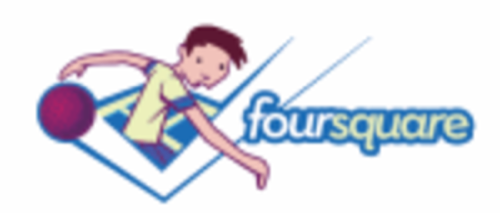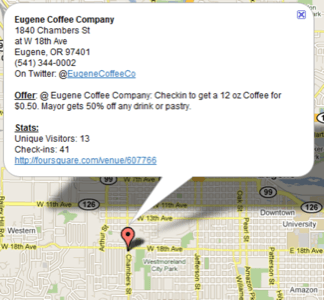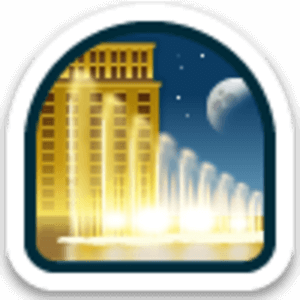One of the motifs you keep coming across when reading about Foursquare and Gowalla, the mobile location apps, is that they are games, and the games are fun.

The most important thing when it comes to gaming is the most subjective, whether the players are having fun. But it’s not the whole story. Were these apps structured to have gameplay, a through-line with obstacles and rewards? Are Foursquare and Gowalla, and apps like them, games by design? And if so, is the gameplay good?
If you’re unfamiliar with the applications, users visit various real-world locations and check in via mobile device. On Foursquare, they score “badges” for visits and, if they’ve visited a given location more than any other place, they become the “Mayor” of that locale.
“Parents often make chores a game to get their kids to do them,” said Dylan Romero, Community Manager for The Great Game Experiment. “They hit the part of the brain dealing with achievement and reward to get more desirable results. I think Foursquare is more a game in this sense. If you want to incentivize customers, videogame or not, give them something to shoot for.”

“The game mechanics are designed to lead people through the experience of using the product,” said Dennis Crowley, co-founder of Foursquare. In other words, gameplay is not in service to the game, but in service to the product.
“The ‘game’ for me is to see if I can get a response or, even better, a perk out if it,” Klavars, a Foursquare user, Tweeted. Although there is currently no reward, other than regard among the Foursquare community, presumably, some venues offer specials to Foursquare users.
Gowalla differs in some important respects from Foursquare. Gowalla uses a series of icon-based rewards called stamps. Given that Gowalla was born from a design company, it’s no surprise that the symbols are very attractive. Likewise its “items.” Locations are sometimes tied to items that show up when you’ve checked in. You can hold the items or drop them off elsewhere, which means a given place may have more items than it had originally. The scoring of these items seems more traditionally game-oriented than Foursquare’s simple badges. Gowalla also has the equivalent of badges in its pins which can be strung together into itineraries for trips.gowallaferry.png
Gowalla also has the equivalent of badges in its pins which can be strung together into itineraries for trips.

However, according to Gowalla’s Josh Williams, the company doesn’t see it as a game at all.
“While there is certainly an element of entertainment and fun to be had while using Gowalla,” he told us, “we view it first and foremost as a social networking service.”
“The iconic items are a bit of an experiment for us. Can we lay a transient piece of data across the service and allow people to interact with it by moving it from place to place, attaching meta-data to it (like a digital message in a bottle), or even attaching real world value to it, as in the case of the NBA tickets given away to a Nets basketball game last week. They’re simply another way to interact with the world around you.”
Gowalla requires GPS and that’s how a user checks in. Foursquare only requires you enter the address, which has led to cheating. However, gaming is not just in the rules but in the expectations. With Foursquare, the unwritten expectation is that if you check in at a place, you will be there for some time. Here the location app aspect of Foursquare creates an expectation in its gameplay. On Gowalla it is perfectly acceptable to check in to a place you can’t really stay, like a landmark.

It seems, then, that neither company has consciously designed their services to be games. But much in the same way that a kid finds a baseball diamond in a clearing in the woods, perhaps the users are the ones who’ve identified and acted upon, the latent gameplay. Because although Foursquare and Gowalla may not be games, there is a game that is being played with them.
Gowalla, in requiring GPS and requiring no any real relationship to the place, might be less appealing on the location side of things. Playing Foursquare is also arguably simpler, and therefor more appealing to more people. I think it’s fair to say that people with higher gameplay expectations will probably find Gowalla more appealing, regardless of creator intent. People who want quick fun with more of a social aspect may favor Foursquare.

















